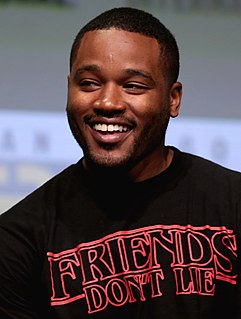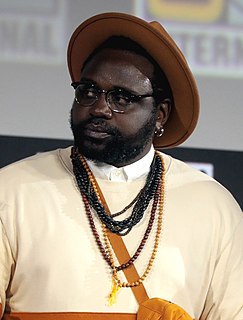A Quote by Alice Walker
I come from somewhere and from specific black people in the South, including my parents, who built our first school, and rebuilt it after it was burned to the ground. And they used to bake pies and cakes to raise money to keep it going. So, I learned to struggle from a very early way in a way that was truly indigenous to the South.
Related Quotes
We were a very politically active family. My father was one of the first lawyers in South Africa to have a black partner, so I grew up very aware of the struggle going on. Coming from that background, it really gave me chills to have my music be a part of the election of the first black American president.
I feel like I'm a New Yorker to the bone. But there is a lot of the South in me. I know there is a lot of the South in my mannerisms. There's a lot of the South in my expectations of other people and how people treat each other. There's a lot of the South in the way I speak, but it could never be home.
Before playing football, I didn't fit in anywhere. My parents didn't have a lot of money, which they spent on our education to send us to Catholic private school in Oakland, mostly black. The other kids had more money than I did. I started school early; I was young. So I'd come back to my hood and read.
As mathematics had been my best subject at school, my parents proposed - and I accepted - studies at the University of Lund in mathematics, statistics, and economics. The choice of the latter subject is said to be due to the fact that at the age of five years, I was very fond of calculating the cost of the various cakes my mother used to bake.
I think that's the best thing about being black is that we find a way to make our own communities and always give room for people to pull up to our tables. We always provide a way for other people from different walks of life to come into the communities that we have built because we're so used to being excluded.
There's an obligation to let people know where their money is going, so the tour has an educational aspect, mostly as a way to thank people. But the most practical use is to raise money and do the research to figure out the proper ways to spend it. You want to make sure that the money doesn't just go somewhere where it does more harm than good.
We were land-based agrarian people from Africa. We were uprooted from Africa, and we spent 200 years developing our culture as black Americans. And then we left the South. We uprooted ourselves and attempted to transplant this culture to the pavements of the industrialized North. And it was a transplant that did not take. I think if we had stayed in the South, we would have been a stronger people. And because the connection between the South of the 20's, 30's and 40's has been broken, it's very difficult to understand who we are.
When I think about the auto-industry and how it was one of the industries that brought all of these black men from the South to Michigan and other places to make more money than they could ever make in the cotton fields or the agricultural world of the South... what's happening now is all of that is closing down, and we know that it's going to reopen in Southern places, focusing on Mexican and other migrant workers to come and work cheaply and get none of the benefits.







































